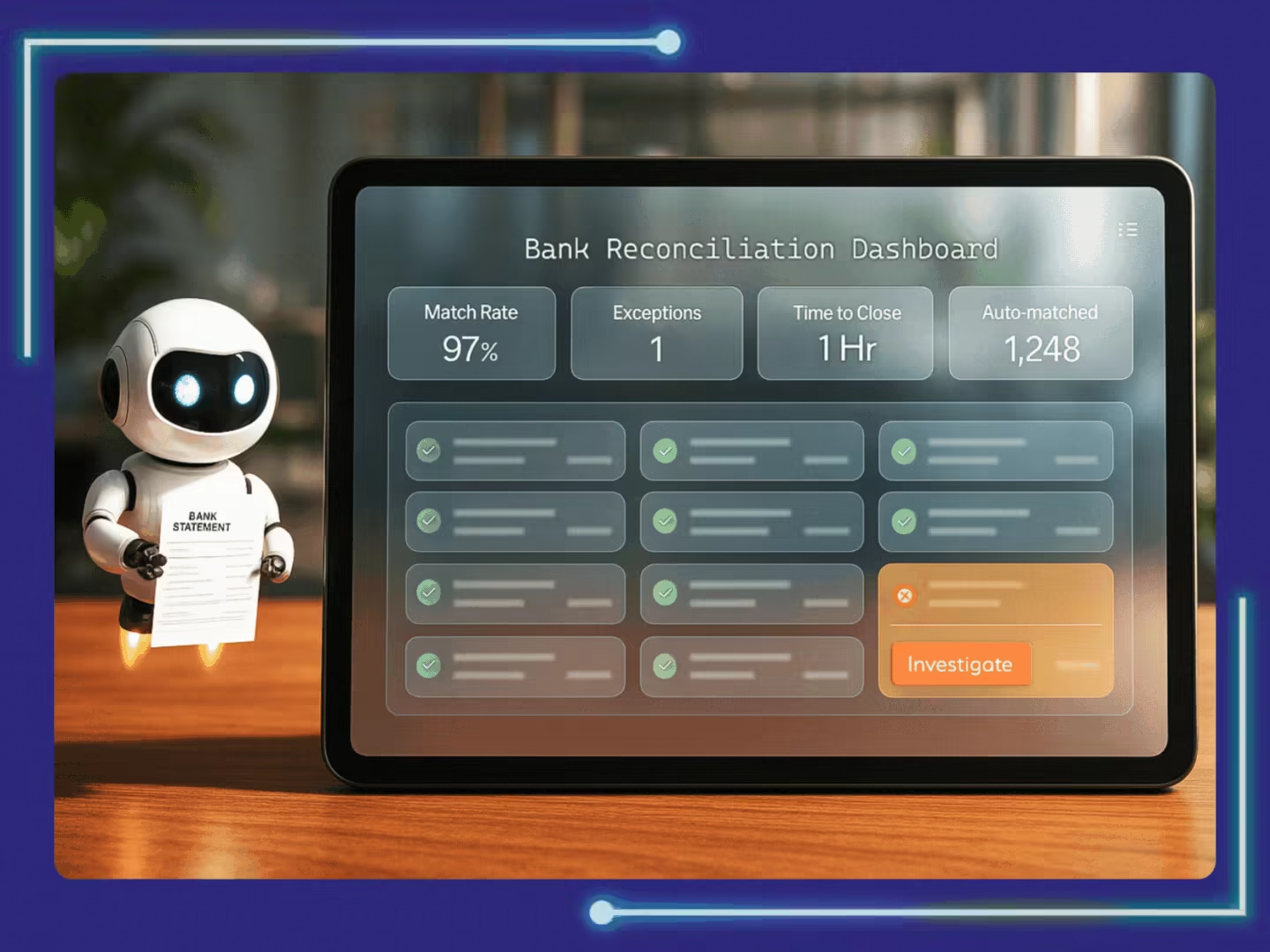In This Blog Post
Share This Article
- Published: Nov 2, 2023
- Last Updated: Jan 16, 2025
- 🔊 Listen
As businesses increasingly shift to digital platforms, the risk of invoice fraud has become a pressing concern. Scammers continually evolve their tactics, posing greater challenges for companies seeking protection. So, how can you shield your business from falling victim to these scams? The solution lies in engaging an accounts payable outsourcing firm for enhanced security and accuracy. An accounts payable (AP) service provider employs a team of experts dedicated to preventing fraud. Moreover, as a business owner, you can also take proactive measures to thwart such fraud attempts. In this blog, we will talk about the rising threat of invoice fraud and provide practical steps you can take today to fortify your business against potential risks.
What is Invoice Fraud?
Invoice fraud, also known as invoice scam, is a deceptive practice where individuals manipulate or forge an invoice to gain a monetary advantage at the expense of others. One common scenario involves a scammer notifying your business of altered payment details for a supplier, providing false information to drain funds.
In different instances of invoice scams, perpetrators intercept a legitimate invoice and replace the bank account information with their own. The fraudulent invoice appears identical to the authentic one except for the altered account number. This scheme is designed to deceive and divert funds into the scammer’s account, closely mimicking legitimate transactions.
Most Common Types of Invoice Fraud
Fraudsters do many types of scams to get money from organizations unethically. To be aware of the frauds, you need to know how many account frauds they do. Given below are some of the major invoice frauds that are done:
-
Sending a fake invoice
False invoices, often disguised as phishing emails, are forged billing statements fabricated by fraudsters to impersonate legitimate vendors or suppliers of various businesses. These deceptive invoices are issued even when no products or invoice services have been provided. They are designed to trick recipients into transferring specified money into the scammer’s account.
-
Joining an email thread
Fraud may occur when scammers successfully gain access to an email account that has been used by an employee or a vendor, often through a phishing email. Subsequently, they monitor email communications, patiently awaiting the opportune moment to intervene. They strategically insert themselves into email exchanges, where they can manipulate payment details with buyers, diverting funds to their bank accounts.
-
Employee Fraud
Company employees with a deep understanding of the organization’s accounting procedures and established vendor relationships may devise schemes or collaborate with external attackers to generate and process fraudulent invoices.
-
Vendor fraud
The attacker pretends to be the vendor and makes a fake invoice that looks real. They send it to the target client, and the email says they’ve changed their bank details and need a quick payment.
-
ACH Fraud
As more businesses transition to ACH payments, staying vigilant in this area is crucial. Cybercriminals increasingly focus on ACH transactions, gaining unauthorized access by compromising business email accounts. These malicious actors often send invoices that mimic legitimate suppliers. When someone clicks the link or opens the file, the attacker gains entry to the system, potentially leading to data theft. ACH fraud can also happen if employees misuse their employer’s account information to open a personal credit card.
How to Identify an Invoice Fraud Before It Happen
Invoice fraud detection becomes difficult while handling a huge number of transactions. But a solution to avoid such fraud is knowing how to identify fake invoices. You need to look after the following points to know how invoice scam is done:
-
Suspicious Sender Email
Examine the email sender’s address carefully, as it may appear official but originate from an unrelated source (e.g., invoice@payphal.com instead of paypal.com).
-
Urgent Threats
Beware of emails using aggressive language that insists on dire consequences if you fail to make immediate payment.
-
Vague Account References
Respond to messages that contain unclear references to your account, profile, or subscription details.
-
Lack of Contact Information
Be cautious if the email doesn’t provide valid customer service contact information or web links for the company.
-
Direct Payment Requests
Exercise caution if the email instructs you to make payments through direct bank or wire transfers rather than using established online invoice payment processing channels.
-
Unsolicited Attachments
Avoid downloading and opening attachments from unknown senders, as they could contain malware.
-
Hidden URLs
Take care with shortened or obfuscated links, as they may hide malicious URLs; hover over them to reveal the full web address.
-
Spelling and Grammar Errors
Legitimate corporate invoices should maintain proper spelling and grammar throughout their content.
-
Unauthorized Services
Be suspicious if the invoice is for invoice processing services, a subscription, or service you neither use nor signed up for, indicating a potential scam.
How to Prevent Your Business from Invoice Fraud
There is always a solution for such activities as invoice fraud. By following the procedures below, you can prevent your business from being a victim of fake invoice scams:
-
Three-way matching
If you can successfully link each invoice with a corresponding purchase order and proof of goods receipt, you significantly reduce the risk of paying a fraudulent invoice. Most scammers are unlikely to go through the trouble of creating three distinct documents.
-
Automate the AP department
Implementing automation in the Accounts Payable department equips you with the necessary tools to more efficiently put into practice all these additional strategies for preventing invoice fraud. It’s likely the most crucial step you can take to combat invoice fraud.
-
Double check BSB and account number
It’s essential to verify the accuracy of payee information, including the Bank State Branch (BSB) and account number. Even a minor alteration could potentially deceive you. Fraudsters often attempt to manipulate payment details. Before making any payments, make sure to confirm the payee’s information.
-
Strong internal records
Using strong internal controls can stop and catch invoice fraud. For instance, having more than one approval for changes to vendor information or payment methods and regularly checking invoices and payments can help.
-
Use accounting software
Utilizing accounting software like QuickBooks accounting services can assist you in efficiently managing your vendors and invoices, making it easier to detect any irregularities. Leading cloud-based accounting software options on the market provide functionalities such as automated payments, which can effectively mitigate the risk of fraud.
-
Know your vendors
Before you pay an invoice, ensure that you are familiar with the vendor and that the vendor is legal. If you’re not acquainted with the vendor, take the time to research and gain a comprehensive understanding of their background thoroughly.
Final Words
In conclusion, the rise of invoice fraud presents a significant challenge for several businesses. As scammers adapt and employ various tactics, safeguarding your business is paramount. Engaging an accounts receivable or accounts payable outsourcing firm can provide enhanced security and precision.
To prevent invoice service fraud, implement three-way matching, automation in the Accounts Payable department, careful verification of payee information, maintaining strong internal records, utilizing accounting software, and conducting thorough vendor research. These proactive steps are your best defence against the growing threat of invoice fraud and will help safeguard your business’s financial integrity.

Get customized plan that supports your growth

Thousands of business owners trust Whiz to manage their account
Let us take care of your books and make this financial year a good one.





